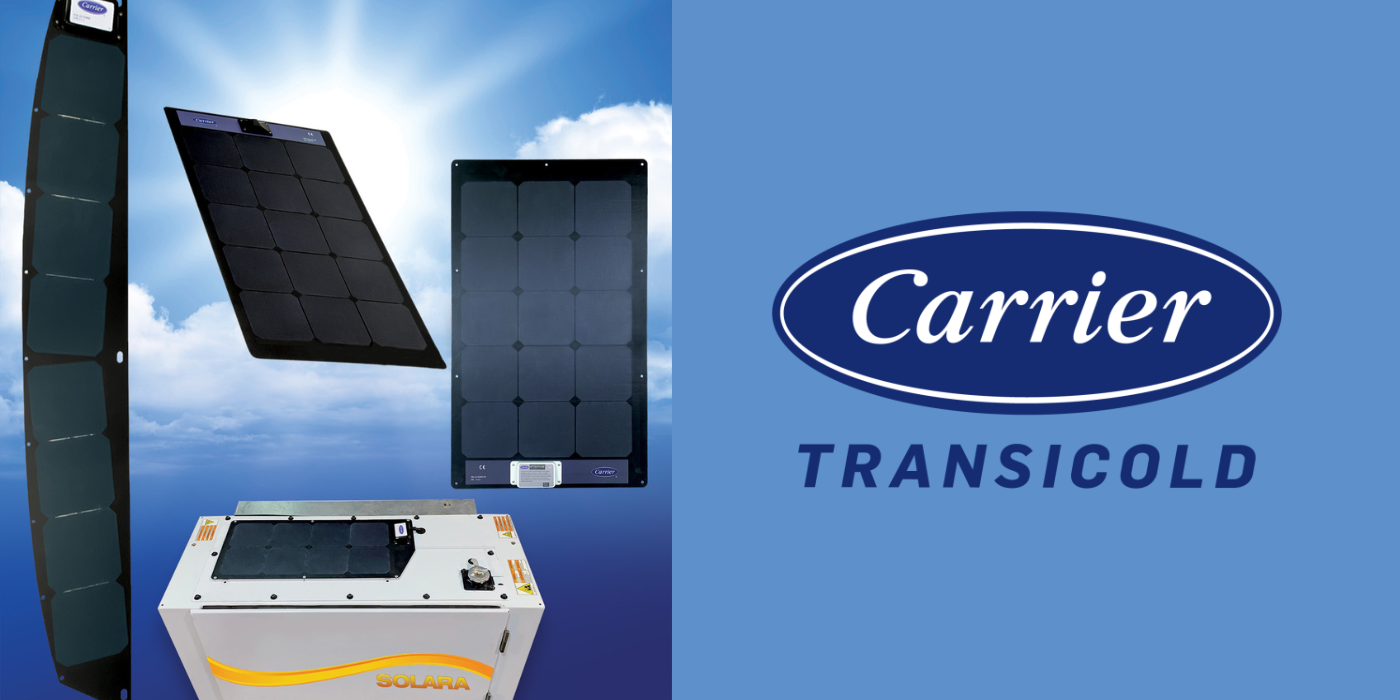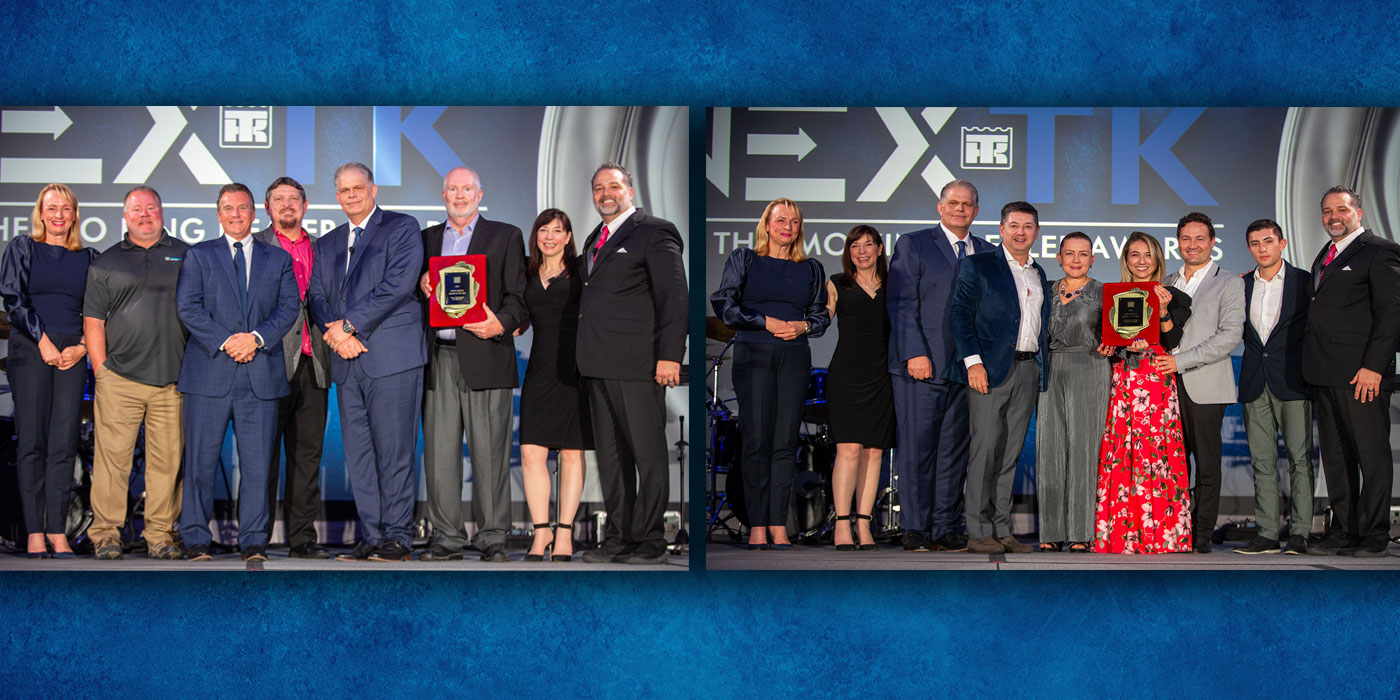Pat Scanlon is a man on a mission. As founder and president of Solar Cool Coatings, he’s trying to help refrigerated trucking operations save money by reducing the sun-induced demands on reefer units. His pitch seems simple and logical: Most trailer roofs become giant heat sinks in direct sunlight, and a lot of that temperature migrates into the cargo area, where it must be mechanically removed. The best way to eliminate this problem is with his product, a bright white acrylic elastomeric coating that reflects light and absorbs almost none of its energy.
Unfortunately for Scanlon, few people are interested—at least yet.
“I started the company five years ago and seemed to be making some progress until 2008, when the economy took a dive,” he says. “Now fleet managers really don’t want to spend any money on products that aren’t absolutely necessary. I can’t blame them. But they don’t realize how fast they could recoup their investment—especially in the South.”
According to Solar Cool’s literature, the typical payback per trailer is 12 months or less. That projection is based on saving eight gallons of fuel per week, 32 sunny, hot weeks per year. Although regional truckers in the Northwest could debate the merits of such a calculation, it certainly seems realistic—perhaps even conservative—for anyone running predominately in the Sunbelt states. Truckers in this scenario would cut their annual fuel cost by $614 (using a current national average of $2.40/gal. for off-road diesel). Scanlon sells a five-gallon pail of Solar Cool—enough for one trailer—for about $270, or roughly $600 with installation.
There are other coatings on the market, for sure, and all make similar or greater cost-saving claims. Most of these are intended for commercial buildings, and some have been on the market for more than 20 years. It seems odd that trailer builders and buyers have, for the most part, overlooked the potential savings from a more reflective white reefer roof. (Wabash National’s SolarGuard roof is an OEM-installed product available at this time.) The school bus industry started painting roofs white more than 10 years ago after hot-weather testing showed a 20-degree difference in cabin temperatures, comparing white- with yellow-topped buses.
The spread in interior temps is even greater with coated and non-coated reefer roofs—as much as 40 degrees, according to information provided by Scanlon and Wabash National. Obviously, this could have a significant impact on the amount of time and fuel required to pre-cool a trailer.
One would think that officials at the SmartWay Transport Partnership would be all over this sort of technology, given the group’s stated goal of boosting the efficiency of North American trucks and buses. That’s not the case, though, says Scanlon: “I contacted those guys a while back, but they weren’t too interested,” he says. “They said they’re focusing on three core objectives and my product really didn’t fit into any of them.”
SmartWay should get involved. At the very least, the group could develop or approve standards for vehicle roof coatings. None exist now and a number of companies are promoting their “special” materials with some rather bold or exaggerated claims.
This problem is highlighted in an article titled “Buyer Beware” on the website of Energy Seal Coatings. It says in part:
“When it comes to roofing, [darker colors result in] greater heat gain. The only ‘magic’ in an energy efficient roof coating is the color. A bright white surface reflects the maximum amount of solar radiation, second only to a gold mirror. What makes a roof coating different from standard latex paint is the resin. Elastomeric resins are designed to be extremely flexible, which is important on vehicular roofs because they move, expand and contract.
“[Some] manufacturers claim that their ceramic microsphere, or hollow-glass-sphere,… coatings can ‘insulate’ a roof… . In some cases, these companies actually assign an ‘R-value’ or ‘K-value’ to their products. Ceramics offer very little if any insulative value.”
Scanlon agrees, even though his product includes a ceramic compound. “It’s there only to provide more strength and resistance to scratches,” he says. “A bigger concern for buyers should be the plasticizers that some of our competitors use. They’re called ‘fillers,’ and they are intended to give coatings more flexibility. Unfortunately, they also break down pretty rapidly when exposed to direct sunlight for extended periods.”
It’s probably safe to say that a brand new reefer will offer maximum efficiency, whether or not its roof is white. The sparkling clean aluminum top skin will reflect a lot of solar rays, and the insulation will be undamaged by age, punctures and moisture. The thermal integrity of a unit starts to decline, however, soon after it goes into service.
Great Dane’s ThermoGuard liner is intended to combat this naturally occurring phenomenon and extend the performance of insulation. According to the company’s marketing materials, ThermoGuard “can potentially reduce cooling unit run time more than 1,000 hours over the course of five years.”
Now if that trailer also happens to have a bright white coated roof, its owner might be able to cut another 1,000 hours (or more) of unit run time during the same period.



